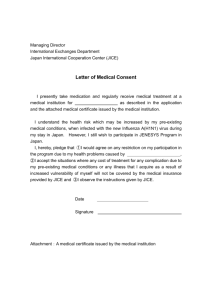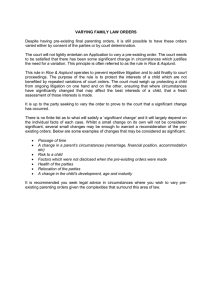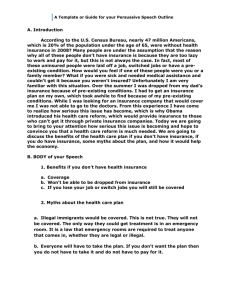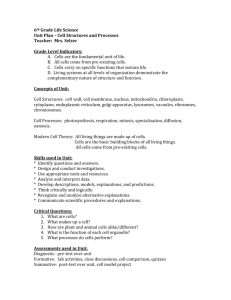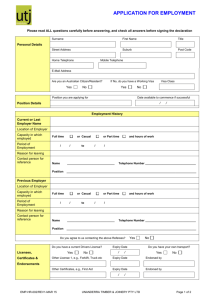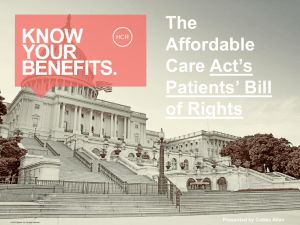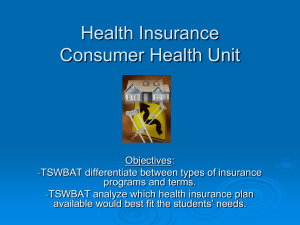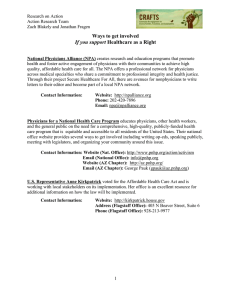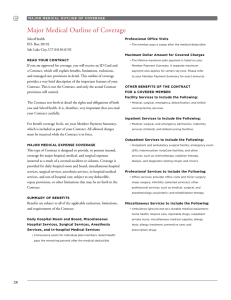Document 13576632
advertisement
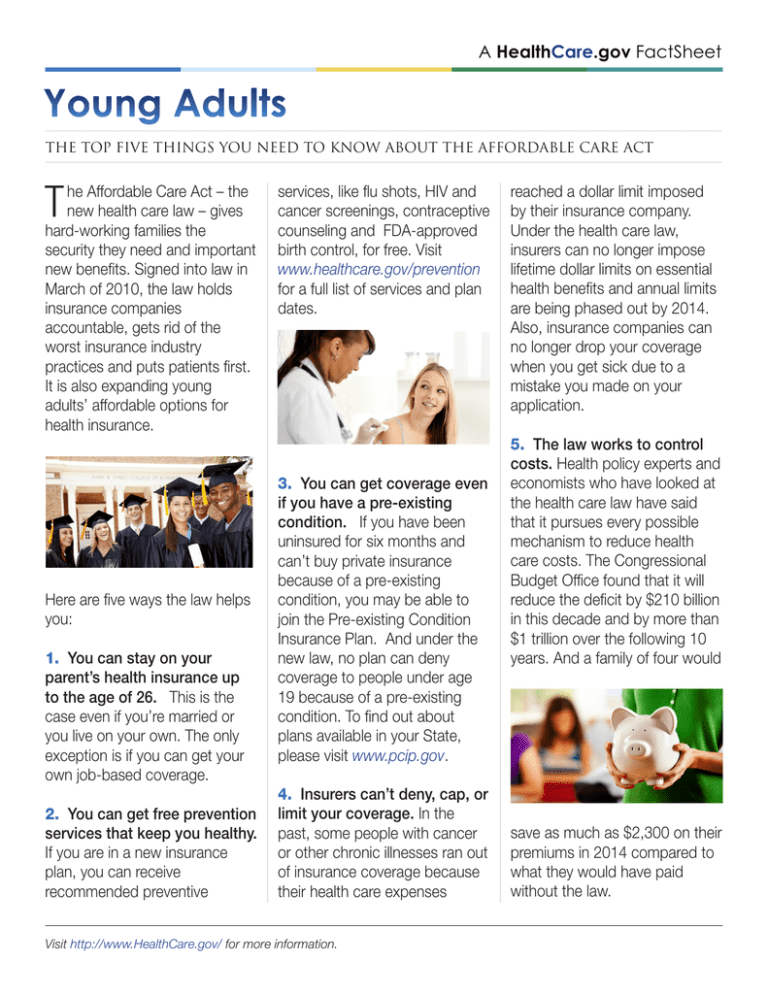
A HealthCare.gov FactSheet THE TOP FIVE THINGS YOU NEED TO KNOW ABOUT THE AFFORDABLE CARE ACT T he Affordable Care Act – the new health care law – gives hard-working families the security they need and important new benefits. Signed into law in March of 2010, the law holds insurance companies accountable, gets rid of the worst insurance industry practices and puts patients first. It is also expanding young adults’ affordable options for health insurance. Here are five ways the law helps you: 1. You can stay on your parent’s health insurance up to the age of 26. This is the case even if you’re married or you live on your own. The only exception is if you can get your own job-based coverage. 2. You can get free prevention services that keep you healthy. If you are in a new insurance plan, you can receive recommended preventive services, like flu shots, HIV and cancer screenings, contraceptive counseling and FDA-approved birth control, for free. Visit www.healthcare.gov/prevention for a full list of services and plan dates. 3. You can get coverage even if you have a pre-existing condition. If you have been uninsured for six months and can’t buy private insurance because of a pre-existing condition, you may be able to join the Pre-existing Condition Insurance Plan. And under the new law, no plan can deny coverage to people under age 19 because of a pre-existing condition. To find out about plans available in your State, please visit www.pcip.gov. 4. Insurers can’t deny, cap, or limit your coverage. In the past, some people with cancer or other chronic illnesses ran out of insurance coverage because their health care expenses Visit http://www.HealthCare.gov/ for more information. reached a dollar limit imposed by their insurance company. Under the health care law, insurers can no longer impose lifetime dollar limits on essential health benefits and annual limits are being phased out by 2014. Also, insurance companies can no longer drop your coverage when you get sick due to a mistake you made on your application. 5. The law works to control costs. Health policy experts and economists who have looked at the health care law have said that it pursues every possible mechanism to reduce health care costs. The Congressional Budget Office found that it will reduce the deficit by $210 billion in this decade and by more than $1 trillion over the following 10 years. And a family of four would save as much as $2,300 on their premiums in 2014 compared to what they would have paid without the law.
